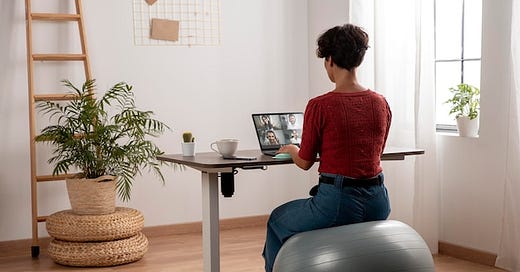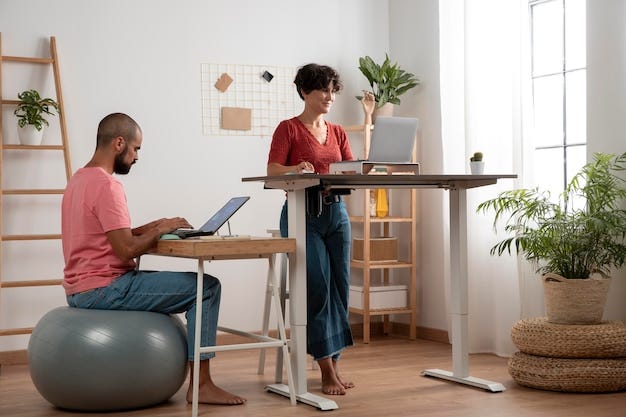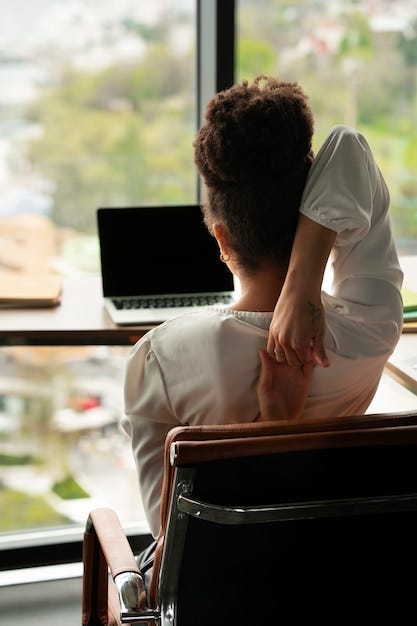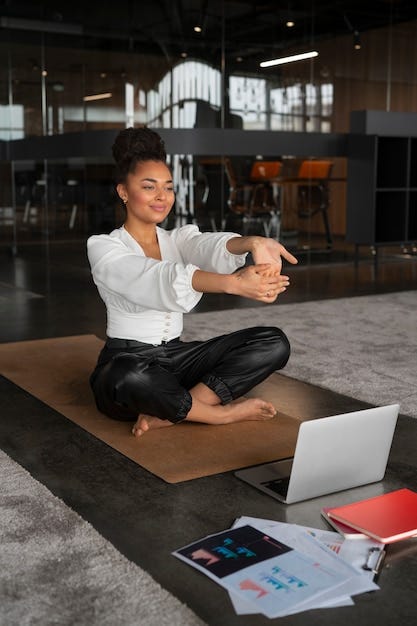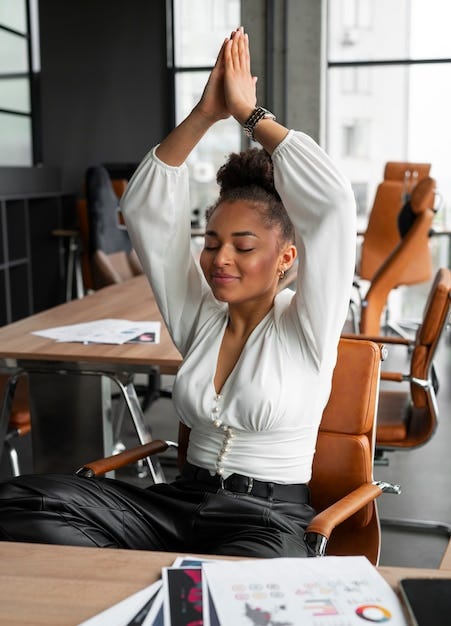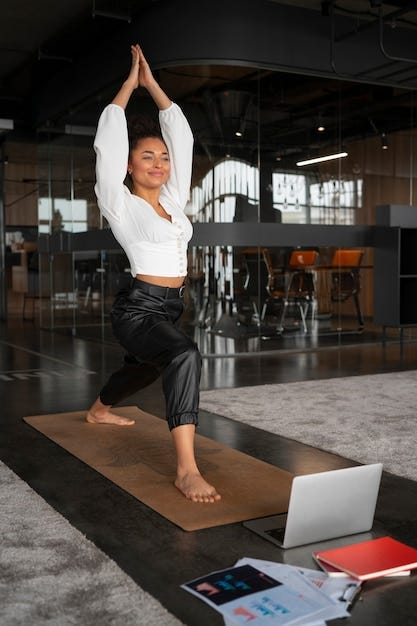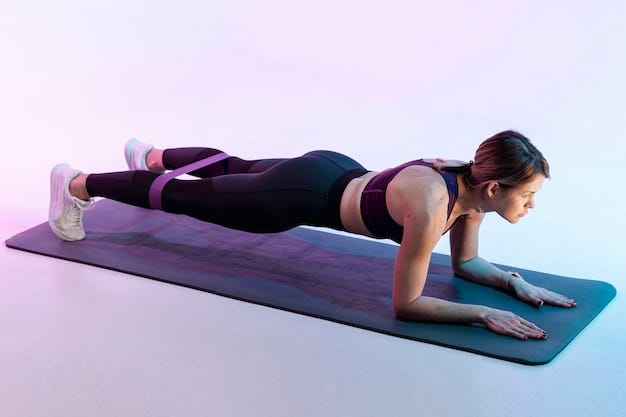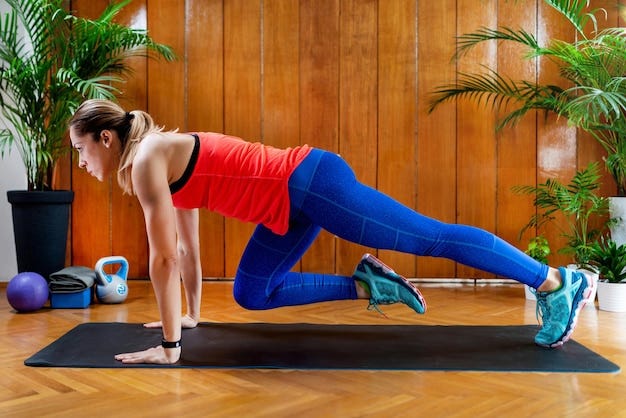Dear Readers,
Welcome to this exciting edition of the "Physiotherapy Post"! As the world becomes increasingly interconnected, the rise of digital nomads—individuals who leverage technology to work remotely while traveling—has become a defining trend of our time. This unique lifestyle offers unparalleled freedom and adventure but also presents distinct challenges, particularly in maintaining physical health and well-being. Whether you're navigating bustling cities, relaxing on remote beaches, or exploring scenic landscapes, staying physically fit and injury-free is crucial to enjoying your nomadic lifestyle. The constant movement and often unpredictable environments can take a toll on your body, making effective physiotherapy strategies essential.
We'll explore practical tips, exercises, and routines specifically designed for digital nomads. From simple stretches you can do during long flights to portable equipment that fits in your backpack, our goal is to help you integrate physiotherapy into your mobile lifestyle seamlessly. We'll also share expert advice on preventing common issues such as back pain, neck strain, and repetitive stress injuries that can arise from prolonged computer use in less-than-ideal ergonomic setups.
As you read through this edition, we hope you find valuable insights and practical advice that you can immediately apply to your journey. Staying fit and healthy is key to making the most of your adventures, and we're here to support you every step of the way.
Thank you for joining us, and here's to your health and happiness on the road!
Warm regards,
Dr. Aditi Singh
Editor-in-chief
Physiotherapy Post
In the digital age, the concept of work has evolved, giving rise to a new breed of professionals known as digital nomads. These individuals combine work and travel, enjoying the freedom to live and work from anywhere in the world. However, this lifestyle comes with unique challenges, particularly when it comes to maintaining physical health. In this edition, we delve into how digital nomads can integrate physiotherapy into their routine to stay fit and injury-free while on the go.
The Challenges of a Nomadic Lifestyle
Digital nomads face several physical challenges due to their constantly changing environments and work setups. Common issues include:
- Poor Ergonomics: Working from various locations, such as cafes, co-working spaces, and hotel rooms, often means suboptimal ergonomic conditions leading to back pain, neck strain, and repetitive stress injuries.
- Limited Access to Fitness Facilities: Frequent travel can make it difficult to maintain a regular exercise routine, as access to gyms or fitness equipment is not always guaranteed.
- Travel Fatigue: Long flights, bus rides, and car journeys can cause stiffness, muscle tension, and circulatory issues.
Essential Physiotherapy Tips for Digital Nomads
1. Portable Ergonomic Solutions:
- Laptop Stand and External Keyboard: Invest in a lightweight, portable laptop stand and an external keyboard to create a more ergonomic workstation wherever you are.
- Portable Back Support:Use an inflatable lumbar support pillow to maintain proper posture while sitting for extended periods.
2. Stretching and Mobility Exercises:
- Regular Stretch Breaks: Take short breaks every hour to perform stretches that target the neck, shoulders, back, and legs. Simple stretches like neck rotations, shoulder shrugs, and hamstring stretches can alleviate tension.
- Yoga and Pilates: Incorporate yoga or Pilates routines into your daily schedule. These practices enhance flexibility, strengthen core muscles, and promote relaxation. Apps and online classes can guide you through sessions tailored for small spaces.
3. Strength and Conditioning Workouts:
- Bodyweight Exercises: Utilize bodyweight exercises such as push-ups, squats, lunges, and planks that require no equipment and can be done anywhere.
- Resistance Bands: Carry a set of resistance bands to perform strength training exercises. They are lightweight, versatile, and effective for maintaining muscle tone and strength.
4. Maintaining Circulation During Travel:
- Leg Movements: During long flights or bus rides, practice simple leg movements like ankle circles and seated marches to keep blood flowing and reduce the risk of deep vein thrombosis (DVT).
- Compression Socks: Wear compression socks during long periods of sitting to improve circulation and prevent swelling.
5. Hydration and Nutrition:
- Stay Hydrated: Drink plenty of water throughout the day, especially during travel. Dehydration can exacerbate muscle cramps and fatigue.
- Balanced Diet: Maintain a balanced diet rich in vitamins and minerals to support overall health and energy levels. Portable, healthy snacks like nuts, fruits, and protein bars can help you avoid unhealthy options while traveling.
Expert Advice and Real-Life Experiences
To provide a well-rounded perspective, we’ve gathered insights from physiotherapists and digital nomads who have successfully integrated physiotherapy into their routines:
- Dr. Ankita Bhojwani, Physiotherapist: “Consistency is key. Even short, daily routines can significantly impact overall health. Focus on mobility and strengthening exercises that address common travel-related issues.”
- Ayushi, Digital Nomad: “I always carry a travel yoga mat and resistance bands. I do a 20-minute routine every morning, which helps me stay energized and reduces discomfort from long hours of work.”
News update:
1. Revolutionizing Eye Health in India and Beyond: A Digital Frontier
Read more at: Link
2. About 25% Indians are overweight or obese, reveals ICMR. This is how to take charge of your health
Read more at: Link
3. Indian fruits that offer better health benefits than supplements
Read more at: Link
Upcoming event/s:
Thought of the Week:
If you have any questions or would like more personalised advice, feel free to reach out to our expert team at dr.aditisingh05@gmail.com.
Wishing you a vibrant and pain-free times ahead!
Warm regards,
Team Physiotherapy Post


